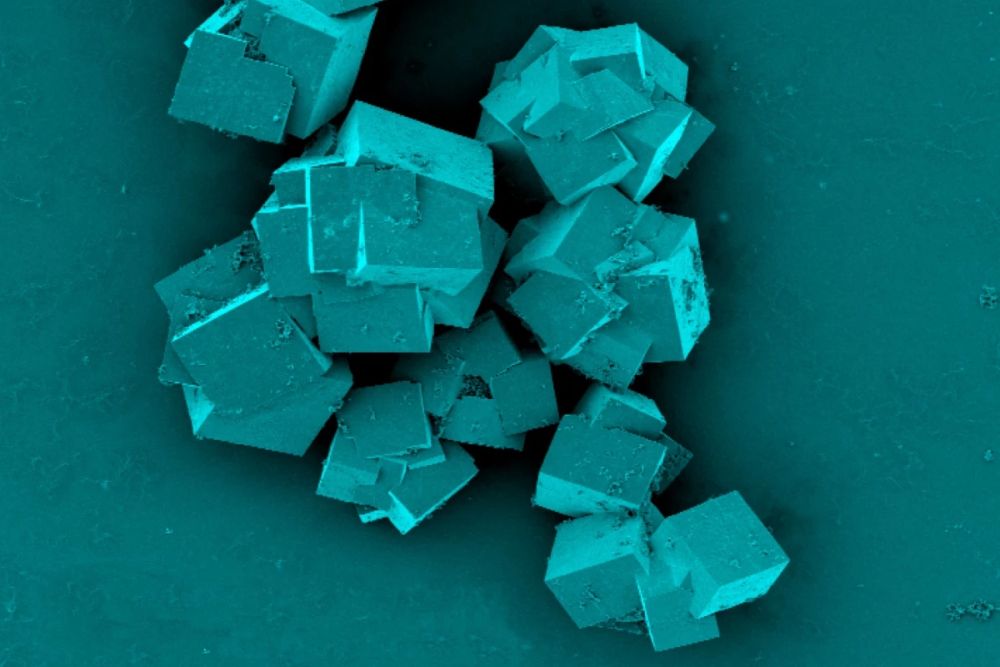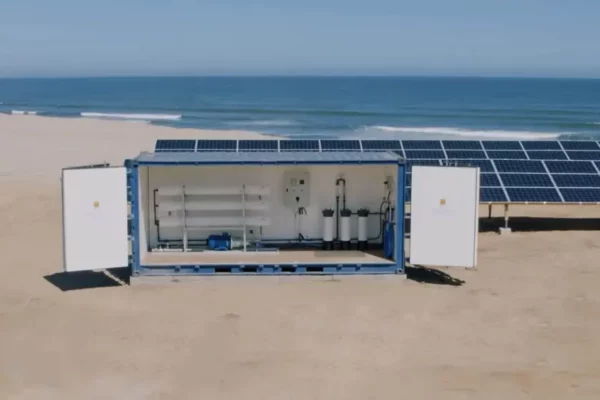Revolutionary Technology Turns Seawater into Potable Water Using Sunlight
With groundwater levels decreasing and rivers drying up, the drinking water resources are declining drastically. Many places across the globe are already struggling for every single drop of drinking water. A research team, led by Australia’s Monash University, has been able to turn seawater into clean potable water in less than 30 minutes using metal-organic frameworks (MOFs) and sunlight.
Researchers have used MOFs to filter pollutants out of seawater, generating large amounts of freshwater per day. MOFs are extremely porous material with high surface areas, which is great for seizing molecules and particles. The research was published in the journal Nature Sustainability.

Scanning electron microscope image of metal-organic frameworks | Image: CSIRO
The team developed a new kind of MOF called PSP-MIL-53, and put it to work capturing salt and impurities in brackish water and seawater. Once placed in the water, the material pulls ions out of the liquid and holds them on its surface, within 30 minutes.
The material can reduce the total dissolved solids in the water from 2,233 parts per million (ppm) to under 500 ppm, which is pretty below the threshold of 600 ppm that the World Health Organization (WHO) commends for safe drinking water.
The material was able to generate about 139.5 L (36.9 gal) of freshwater per kg of MOF per day. The material is easy to clean after every use – place it in sunlight, which causes it to release the captured salts in as little as four minutes.
Thermal desalination processes by evaporation are energy-intensive, and other technologies, such as reverse osmosis, has a number of drawbacks, including high energy consumption and chemical usage in membrane cleaning and dichlorination. Our development of a new adsorbent-based desalination process through the use of sunlight for regeneration provides an energy-efficient and environmentally-sustainable solution for desalination.
Said Huanting Wang, lead author of the study.
Even though there is no scarcity of desalination systems in use or development, the team believes that new MOF is faster-acting than other techniques, and necessitates much less energy during the process.


